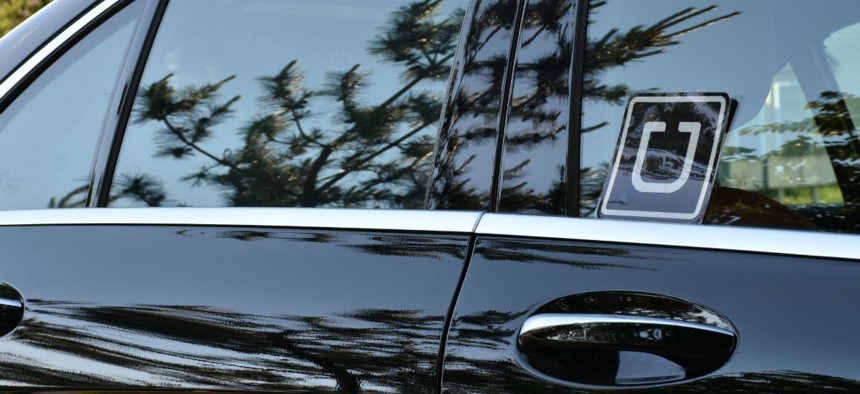Lawmakers Want Feds to Use Transit Perks to Pay for Uber During Metro Delays
A separate measure would boost the use of car and bike sharing across government.
Federal agencies throughout the Washington, D.C.-region have taken a variety of measures to ease the transportation burden on employees dealing with the Metrorail’s year-long maintenance plan, but for some lawmakers those options were not sufficient.
Agencies have offered employees flexible schedules, increased use of telework and parking permits, among other options, as the Washington Metropolitan Area Transit Authority completes its SafeTrack program. The Office of Personnel Management has recommended that Washington-area agencies maximize the use of workplace flexibilities and has established an interagency working group through the Chief Human Capital Officers Council to further study how the project -- which will entail continuous single-tracking on some line segments for several weeks at a time, and will close down other portions of track entirely for as long as 23 days -- will affect agencies and to issue additional guidance and best practices for keeping the workforce productive during the repairs.
Reps. Gerry Connolly, D-Va., and Mark Meadows, R-N.C., who head the subcommittee with direct oversight of the federal workforce, introduced on Friday legislation to allow feds to use their transit benefits toward ride-sharing companies like Uber and Lyft.
Connolly called the repairs necessary to get the embattled rail system in proper working order, but said the government must offer “as many options as possible” to deal with the resulting delays.
“The ridesharing economy offers a unique and flexible alternative until full Metro service is restored and should be an option for our federal workforce as they maintain a continuity of operations for the federal government,” said Connolly, who previously called on agencies to expand telework options during SafeTrack.
Meadows added the Metro delays are starting to affect employees’ work.
“During a time when WMATA is getting its house in order, federal commuters have been frustrated at their lack of options for getting in to work,” Meadows said. “Many of the frequent, random delays on the Metro have caused some federal workers to arrive late, miss meetings, or lose out on valuable work time. This bill will allow federal workers to expand their commuting options and not require them to depend on a sole, unreliable form of transportation.”
Earlier in the week, a different group of bipartisan lawmakers pushed the federal government to ease the use of ride-sharing services by issuing guidance for agencies. The Government Travel Modernization Act, introduced by Rep. Seth Moulton, D-Mass., would require the General Services Administration to issue regulations allowing federal employees to use services like Uber and Lyft, as well as bikeshares. The lawmakers called the existing guidance disparate and in need of a comprehensive update.
“Innovative modes of transportation like Uber, Lyft, and bikeshare have improved the way we travel, yet currently, federal employees are not able to take full advantage of these cost-effective options for official travel,” Moulton said. “This bill seeks to bring innovation into how government functions by utilizing the new technology that is available to us.”
The measure would require GSA to report annually on the savings agencies achieved from its implementation.
NEXT STORY: You’re Going to Have to Make Some Tax Decisions








